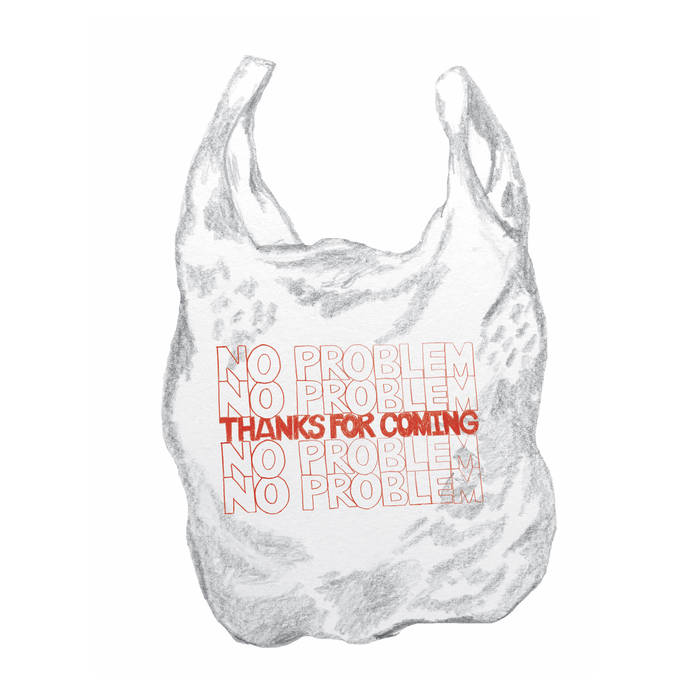by Tom Alexander (@___alexd)
The common, unfair perception of lo-fi music is that it’s not ambitious, and as the stereotype goes, the music is written, recorded, and released quickly. Rachel Brown, the songwriter behind Thanks for Coming, has leaned into those stereotypes at times, uploading a song onto Bandcamp, letting it sit there for a day, and then promptly removing it. Their new album, No Problem, is a deliberate attempt to shake off those instincts. Written nearly two years ago, recorded with a full band, compiled of 24 tracks, No Problem is a wildly ambitious album, and that’s even before you take into consideration the 24 music video counterparts, directed by 24 different teams! It’s an epic composed of private thoughts, pitch-black comedy, nuanced observations, and self-aware anxieties. Or to phrase it differently: a huge thing made of many smaller things.
To give you an impression on the kind of humor that No Problem is rife with, just take a look at the first track. The title, “thanksforcoming.bandcamp.com” leads you to – you guessed it – Rachel Brown’s Bandcamp page. The header for their page is a screenshot of a Word document with the phrase “thanks for coming, i’m ‘thanks for coming’” in its default font; the document apparently titled “a good joke.” Explaining jokes always ruins them, but it’s a self-aware, meta-thematic gag that sums of Brown’s sense of humor, which plays a big part in their lyrics. There’s not an 8-second stretch of No Problem that goes without Brown’s lyrics, and they’re all good. Print them out, close your eyes, and throw a dart – you’re almost certain to land on something good enough to get tattooed.
What separates No Problem from many of Brown’s other recordings is the full-band treatment it received. While all of these songs were written by Brown, these backing accompaniments really accentuate their gift for melody. Mike Kolb and Charlie Dore-Young fill in on bass and lead guitar respectively, while Nate Amos – Brown’s collaborator in Water From Your Eyes, and songwriter for This Is Lorelei – played drums and produced. For example, lead single “Friends Forever” has a walking lead bass line during the verses that make the vocals/lyrics all the more searching and restless. The chorus of “Late Capitalism,” where the crashing cymbals and distortion sharpen the lyrics, are focused on the mechanical, destructive nature of competition in the music industry. My personal favorite of these instances is “Heroes Don’t Run Away (But I Sure As Hell Am),” where the band’s looser performance in the first half of the chorus immediately tightens as the nostalgia of the lyrics recedes and Brown explores their current wants and motivations. The full band fleshes out No Problem’s ideas while keeping Brown’s clear, ultra-diaristic, close perspective.
No Problem also features 24 separate music videos, one for each track on the record. Each song was directed by a different director (or in some cases, directors), and they range from microbudget experiments to elaborate narratives and animated featurettes. I won’t describe each of these videos in detail, but I will mention that they are just as worthy of your time as the album itself (and you’ll even notice some familiar names, like two of the members of Human People who directed the animated “Late Capitalism”). These videos took considerable time and effort to record -- you can see Brown’s hair change in length and style from video to video, recording the very real passage of time. The very existence of them is a joyous push back against the stigma and stereotypes of “lo fi” music. This commitment shows the faith and trust Brown has in these songs – they’re worthy of this ambitious treatment because these songs are smart, emotional, and beautiful.

